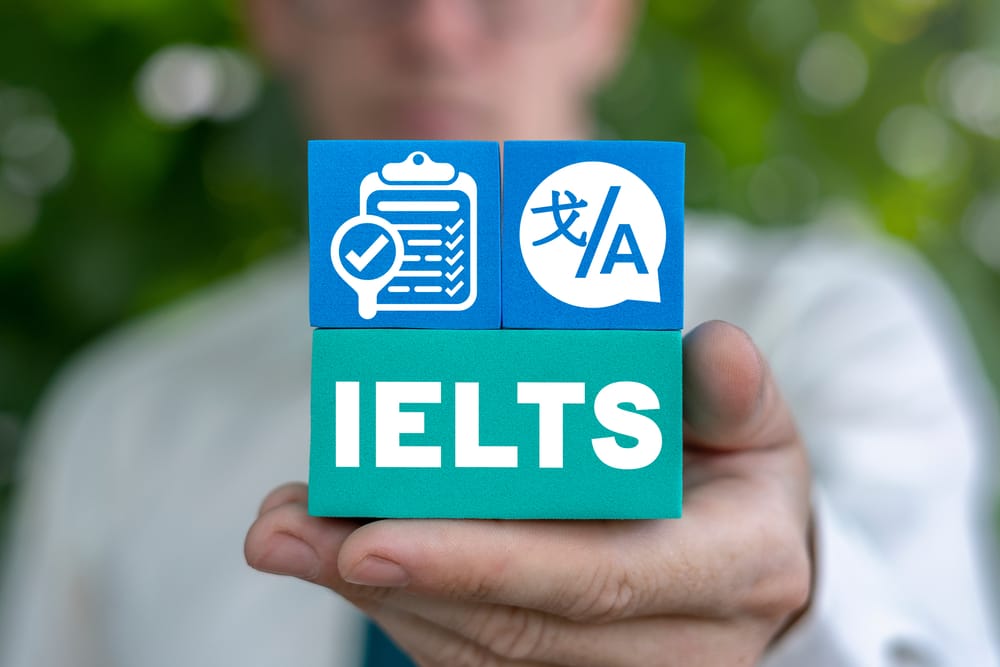The International English Language Testing System (IELTS) is one of the most widely recognized English proficiency tests for students planning to study abroad. Accepted by universities in countries like the UK, USA, Canada, Australia, and Europe, the IELTS assesses a candidate’s ability to listen, read, write, and speak in English.
If you’re planning to take the IELTS, understanding its structure, scoring system, and preparation strategies is crucial to achieving your desired band score. This blog will walk you through each section of the exam and provide useful tips to help you succeed.
1. IELTS Exam Structure: Four Key Sections
The IELTS exam is divided into four sections: Listening, Reading, Writing, and Speaking. The total test duration is 2 hours and 45 minutes.
A. Listening (30 minutes + 10 minutes to transfer answers)
- Format: 4 recorded conversations or monologues (e.g., a university lecture, an interview, or an everyday conversation).
- Number of Questions: 40
- Question Types: Multiple-choice, matching, note completion, form/table completion, and sentence completion.
- Scoring: 0–9 band score
📌 Tips for Listening:
✔️ Focus on keywords in the questions before the audio starts.
✔️ Listen carefully for synonyms and paraphrases.
✔️ Use the 10-minute transfer time to review your answers.
B. Reading (60 minutes)
- Format: Three long passages taken from books, magazines, newspapers, or academic journals.
- Number of Questions: 40
- Question Types: True/False/Not Given, matching headings, summary completion, multiple-choice, and sentence completion.
- Scoring: 0–9 band score
📌 Tips for Reading:
✔️ Skim the passage first to get a general idea.
✔️ Scan for key information related to the questions.
✔️ Manage your time – don’t spend too long on one question.
C. Writing (60 minutes)
- Task 1 (Academic Test): Describe and analyze a chart, graph, table, diagram, or process (150 words).
- Task 1 (General Training Test): Write a letter (formal, semi-formal, or informal) based on a given scenario.
- Task 2 (Both Tests): Write an essay in response to an argument or problem (250 words).
📌 Tips for Writing:
✔️ Spend 20 minutes on Task 1 and 40 minutes on Task 2.
✔️ Plan your essay before writing.
✔️ Use a range of vocabulary and sentence structures.
✔️ Proofread your work for grammar and spelling mistakes.
D. Speaking (11–14 minutes)
- Part 1: Personal introduction and answering general questions (4–5 minutes).
- Part 2: Speaking for 1–2 minutes on a given topic after 1-minute preparation.
- Part 3: A discussion based on Part 2, with more complex questions (4–5 minutes).
📌 Tips for Speaking:
✔️ Speak confidently and clearly.
✔️ Use varied vocabulary and avoid one-word answers.
✔️ Practice answering different topics to improve fluency.
2. IELTS Scoring System (Band Scores Explained)
The IELTS is scored on a band scale from 0 to 9, with 9 being the highest score. Each section (Listening, Reading, Writing, and Speaking) is scored individually, and the overall band score is the average of all four sections.
| Band Score | Proficiency Level |
|---|---|
| 9.0 | Expert User |
| 8.0 – 8.5 | Very Good User |
| 7.0 – 7.5 | Good User |
| 6.0 – 6.5 | Competent User |
| 5.0 – 5.5 | Modest User |
| 4.0 – 4.5 | Limited User |
| Below 4.0 | Extremely Limited User |
📌 What Score Do You Need?
Most universities require a minimum score of 6.0–7.5. Some institutions may have specific requirements for each section, so always check the entry requirements of your chosen university.
3. Preparation Tips for a High IELTS Score
✅ 1. Take Practice Tests
Simulate real exam conditions by taking full-length mock tests. This will help you manage your time and improve accuracy.
✅ 2. Build Your Vocabulary
Expand your academic and conversational vocabulary by reading books, newspapers, and listening to English podcasts.
✅ 3. Improve Your Writing Skills
Practice writing essays and reports. Get feedback from teachers or online platforms to improve your structure and grammar.
✅ 4. Enhance Your Listening & Speaking Skills
Listen to English news, TED Talks, and audiobooks. Practice speaking with a partner or record yourself to analyze your fluency.
✅ 5. Time Management is Key
Since each section has strict time limits, practice answering questions quickly and efficiently.
✅ 6. Understand Common Question Types
Familiarize yourself with different IELTS question formats so you’re not surprised on exam day.
Final Thoughts
The IELTS is a crucial step for students aiming to study abroad. With proper preparation, practice, and strategy, you can achieve your desired score and secure admission to your dream university.
If you’re still unsure whether IELTS is the right test for you, stay tuned for our next blog post comparing IELTS vs. PTE – Which Test is Easier?
🎯 Need Expert Guidance?
At Bellview Educator, we offer personalized coaching and study abroad consultation to help you ace the IELTS and fulfill your study abroad dreams. Contact us today!









